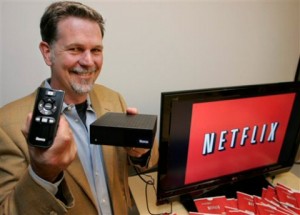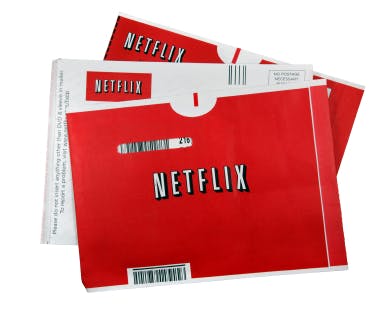I’ll admit it: I’m a Netflix fan.
I haven’t been a big movie guy since my days of wearing tuxedo shirts while working at a Hollywood Video store, but Netflix’s service covers more than just movies. We watch interesting documentaries, old movies and TV shows on their streaming service. And when we got notice yesterday that our price would be going up, we were a bit surprised (but still keeping the service).
What should have been less surprising is that people were outraged online by the price hike, and my thoughts turned to the Netflix culture, their employees, and where this series of events might take them in the long term.
(Some) customers none too happy with a price increase
I’m a firm believer that commenting and open dialog generally make the web a better place. What I don’t particularly like is the pile-on mentality when a company makes a mistake (perceived or otherwise) and the focus on it becomes more on what a few commenters say rather than larger indicators of issues surrounding the decision. Case in point, this piece from PC Magazine:
The blog post announcing the split currently has more than 11,000 comments from the Netflix community and Facebook, many of which complain about the lackluster selection on Netflix’s Watch Instantly service or express disappointment in Netflix’s decision to raise prices on loyal customers.
Several customers were annoyed that Netflix was not providing a discount to those who subscribed to streaming and DVD rentals.
“How about a discount for customers that choose both DVD and streaming plans? That way, you’re not only ‘appeasing’ customers who want unlimited streaming OR DVDs, but you’re also giving some incentive to keep both services,” a user name Mike wrote via Facebook.”

Of course, there is virtually no coverage of the increase in stock price (which is up 2.5 percent to just under $300) since the announcement. More to the point though, how would you react if you were an employee? First a bit of context.
CEO pay and culture
One of the sticking points of some customer’s complaints is that Netflix CEO Reed Hastings gets paid a lot of money. Of course, what’s not mentioned is that most of it is through stock options and sales, as a story from last year reports:
Through the first eight months of the year, Hastings has pocketed $31 million through the little-noticed sales, according to data from The Washington Service, a firm which tracks insider stock trades.
If the Netflix stock continues to fly — and it’s up 129 percent this year — Hastings could earn close to $60 million in compensation by yearend, which would be more than CBS Corp. CEO Leslie Moonves’ $43 million in 2009 compensation.”
And that’s why the increase in stock price is important. If you look at a the last few years of Netflix stock prices, you see that it goes up as fast as a thrill ride. For someone getting paid mostly by exercising stock options (some granted for as little as a $1.50 each), that’s pretty important.
Of course, the CEO isn’t the only one who is getting paid.
Netflix has been fairly open about their compensation practices, which includes being at the top of the market as far as wages are concerned, and, allowing employees to take as much vacation as they want (assuming of course, their work gets done). They want to ensure that when you leave the company, you’ll be getting a pay decrease.
Their culture aligns to this philosophy as well. If they are paying top of the line wages and giving employees a lot of job flexibility, that means they expect top of the line results, too. In fact, watching the Powerpoint they generated and posted, it seems pretty emphatic that if you aren’t ready to achieve greatness every day, you’re probably not ready to work at Netflix.
How do they deal with backlash?
Even though I have no idea how much the the online backlash mirrors their base of 20 plus million subscribers, I’m sure there is a pretty good portion of that for Netflix, and some will be vocal. I don’t know how this will impact their revenue either (though Wall Street doesn’t seem too concerned yet) and while some customers will will leave, others will change plans or simply eat the price increase.
Given their espoused culture (and confirming it personally, at least as of a little over a year ago), I don’t think it will be too bad internally at Netflix. But their employment brand targeting new recruits? That might be a different story.
A post I read from Leanne Chase seems to indicate that it might be a bigger concern than I thought it would be. Top of the line pay and extraordinary schedule flexibility is pretty tough to pass up though, even if the company has made a mistake. In the long term, it will likely be a factor, but not a large one unless there are repeats of this incident.
Even in considering this recent backlash, Netflix’s overall reputation both as a business and a workplace is better than most. And while a PR crisis like this can feel like it is taking all the wind out of your company initiatives, it’s better to remember that long term reputation and culture are what’s most important.
